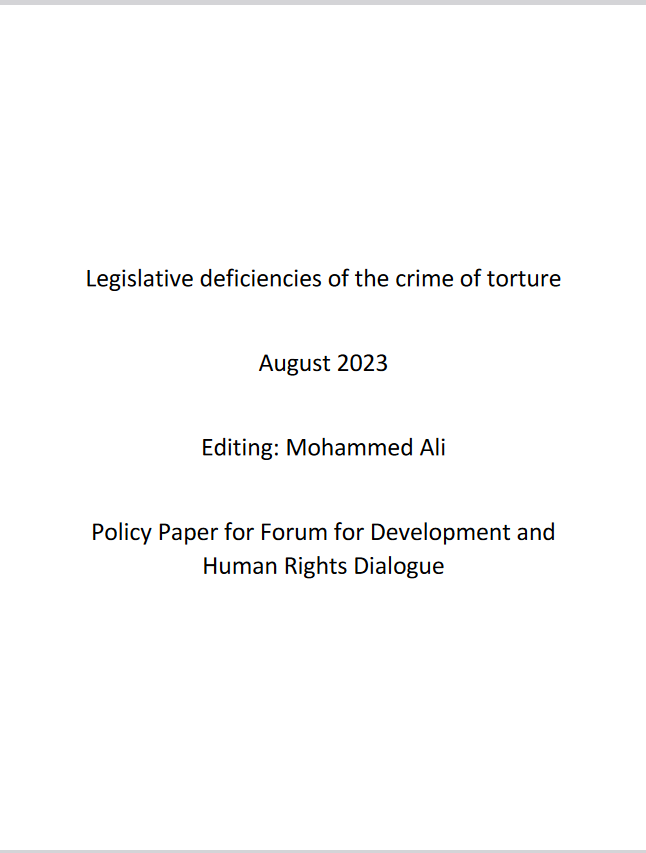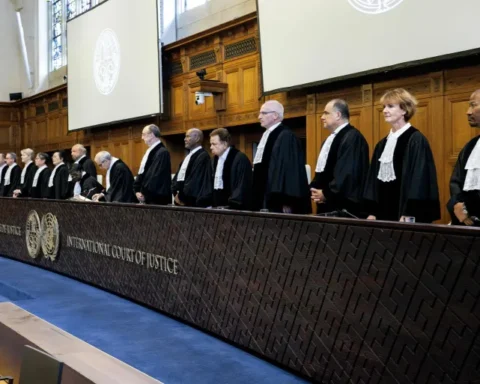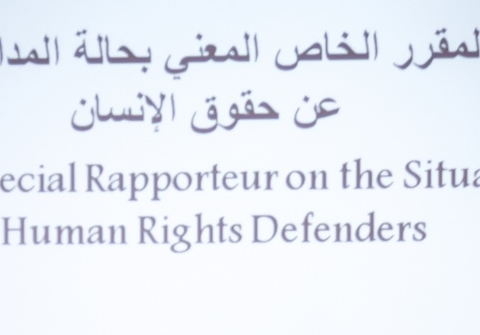Press Release
…………………………………………………………………………….
On Monday 21\8\2023, The Forum for Development and Human Rights Dialogue issues a policy paper on the legislative deficiency of the crime of torture in Egyptian law, its compatibility with the Convention against Torture and the needs of the Egyptian legislature in order to remedy that deficiency and its compatibility with international conventions.
The paper referred at the outset to the new provisions of the current Constitution concerning the crime of torture, and the lack of the use of these provisions, because of the absence of subsequent legislation regulating them. It also referred to the targeted results set out in the National Human Rights Strategy to Combat Torture, which has yet been achieved.
The paper then elaborated on the procedural inadequacy of the legislation that the victim should not be allowed to resort to the direct prosecution of torture offences. The law also prohibited the plaintiff from complaining about the prosecution’s decision that criminal proceedings for torture-related offences should not be instituted.
The paper also addressed the substantive deficiency of:
The absence of a specific definition of the crime of torture,
Not to include moral torture as an offence punishable by law,
Not to punish the accused for the crime of torture if he\she tortures another person to induce the accused to confess,
Not to punish the official who learned of torture and did not intervene to prevent it and to punish the perpetrator of torture,
The legislator who also linked the crime of torture to the withdrawal of a confession without punishing torture that is done simply to abuse him\her, or to mutilate him\her, or as a matter of imposing their control over him\her.
Finally, the paper concluded with some recommendations on amending certain legislation to address this deficiency, recommended some policies that help to combat torture, and called for accession to the Optional Protocol to the Convention against Torture and Other Cruel, Inhuman or Degrading Treatment or Punishment.
The most prominent of these recommendations are:
- Implementing the constitutional entitlement, and issuing a new article regulating direct prosecution before the Criminal Court.
- Amending article 63 of the Code of Criminal Procedure.
- Applying of constitutional entitlement and second amendment of article 232 of the Code of Criminal Procedure.
- Amending of article 210 of the Code of Criminal Procedure.
- Amending article 126 of the Penal Code.
- Amending article 129 of the Penal Code.
- Defining the crime of torture to be consistent with article 1 of the International Convention against Torture, which Egypt ratified in 1986.
- Adding the penalty of dismissal from the post for any public official convicted of the crime of torture.
- The necessity of establish a national mechanism to reduce torture and to explore ways of eliminating torture.
- The necessity of acceding to the Optional Protocol to the Convention against Torture and Other Cruel, Inhuman or Degrading Treatment or Punishment.








